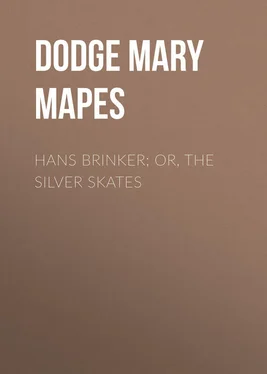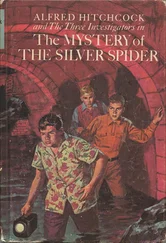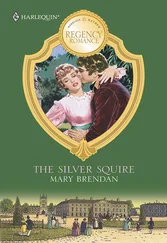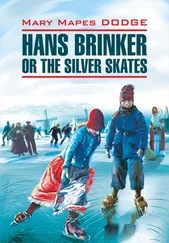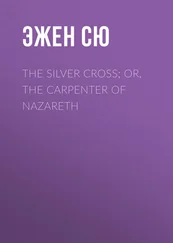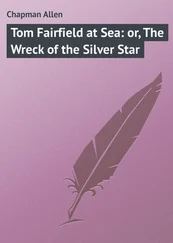Mary Dodge - Hans Brinker; Or, The Silver Skates
Здесь есть возможность читать онлайн «Mary Dodge - Hans Brinker; Or, The Silver Skates» — ознакомительный отрывок электронной книги совершенно бесплатно, а после прочтения отрывка купить полную версию. В некоторых случаях можно слушать аудио, скачать через торрент в формате fb2 и присутствует краткое содержание. Жанр: foreign_antique, foreign_prose, на английском языке. Описание произведения, (предисловие) а так же отзывы посетителей доступны на портале библиотеки ЛибКат.
- Название:Hans Brinker; Or, The Silver Skates
- Автор:
- Жанр:
- Год:неизвестен
- ISBN:нет данных
- Рейтинг книги:4 / 5. Голосов: 1
-
Избранное:Добавить в избранное
- Отзывы:
-
Ваша оценка:
- 80
- 1
- 2
- 3
- 4
- 5
Hans Brinker; Or, The Silver Skates: краткое содержание, описание и аннотация
Предлагаем к чтению аннотацию, описание, краткое содержание или предисловие (зависит от того, что написал сам автор книги «Hans Brinker; Or, The Silver Skates»). Если вы не нашли необходимую информацию о книге — напишите в комментариях, мы постараемся отыскать её.
Hans Brinker; Or, The Silver Skates — читать онлайн ознакомительный отрывок
Ниже представлен текст книги, разбитый по страницам. Система сохранения места последней прочитанной страницы, позволяет с удобством читать онлайн бесплатно книгу «Hans Brinker; Or, The Silver Skates», без необходимости каждый раз заново искать на чём Вы остановились. Поставьте закладку, и сможете в любой момент перейти на страницу, на которой закончили чтение.
Интервал:
Закладка:
While Ben was skating, with his friends, upon the crowded canals of the city, he found it difficult to believe that the sleepy Dutchmen he saw around him, smoking their pipes so leisurely, and looking as though their hats might be knocked off their heads without their making any resistance, were capable of those outbreaks that had taken place in Holland – that they were really fellow-countrymen of the brave, devoted heroes of whom he had read in Dutch history.
As his party skimmed lightly along he told Van Mounen of a burial-riot which in 1696 had occurred in that very city, where the women and children turned out, as well as the men, and formed mock funeral processions through the town, to show the burgomasters that certain new regulations, with regard to burying the dead, would not be acceded to – how at last they grew so unmanageable, and threatened so much damage to the city that the burgomasters were glad to recall the offensive law.
"There's the corner," said Jacob, pointing to some large buildings, "where, about fifteen years ago, the great corn-houses sank down in the mud. They were strong affairs, and set up on good piles, but they had over seventy thousand hundred-weight of corn in them; and that was too much."
It was a long story for Jacob to tell and he stopped to rest.
"How do you know there were seventy thousand hundred-weight in them?" asked Carl sharply – "you were in your swaddling clothes then."
"My father knows all about it," was Jacob's suggestive reply. Rousing himself with an effort, he continued – "Ben likes pictures. Show him some."
"All right," said the captain.
"If we had time, Benjamin," said Lambert van Mounen in English, "I should like to take you to the City Hall or Stadhuis . There are building-piles for you! It is built on nearly fourteen thousand of them, driven seventy feet into the ground. But what I wish you to see there is the big picture of Van Speyk blowing up his ship – great picture."
"Van who ?" asked Ben.
"Van Speyk. Don't you remember? He was in the height of an engagement with the Belgians, and when he found that they had the better of him and would capture his ship, he blew it up, and himself too, rather than yield to the enemy."
"Wasn't that Van Tromp?"
"Oh, no. Van Tromp was another brave fellow. They've a monument to him down at Delft Haven – the place where the Pilgrims took ship for America."
"Well, what about Van Tromp? He was a great Dutch Admiral; wasn't he?"
"Yes, he was in more than thirty sea-fights. He beat the Spanish fleet and an English one, and then fastened a broom to his masthead to show that he had swept the English from the sea. Takes the Dutch to beat, my boy!"
"Hold up!" cried Ben, "broom or no broom, the English conquered him at last. I remember all about it now. He was killed somewhere on the Dutch coast, in an engagement in which the British fleet was victorious. Too bad," he added maliciously, "wasn't it?"
"Ahem! where are we?" exclaimed Lambert changing the subject. "Hollo! the others are way ahead of us – all but Jacob. Whew! how fat he is! He'll break down before we're half-way."
Ben of course enjoyed skating beside Lambert, who though a staunch Hollander, had been educated near London, and could speak English as fluently as Dutch; but he was not sorry when Captain van Holp called out:
"Skates off! There's the Museum!"
It was open, and there was no charge on that day for admission. In they went, shuffling, as boys will, when they have a chance, just to hear the sound of their shoes on the polished floor.
This Museum is in fact a picture gallery where some of the finest works of the Dutch masters are to be seen, beside nearly two hundred portfolios of rare engravings.
Ben noticed, at once, that some of the pictures were hung on panels fastened to the wall with hinges. These could be swung forward like a window-shutter, thus enabling the subject to be seen in the best light. The plan served them well in viewing a small group by Gerard Douw, called the "Evening School," enabling them to observe its exquisite finish and the wonderful way in which the picture seemed to be lit through its own windows. Peter pointed out the beauties of another picture by Douw, called "The Hermit," and he also told them some interesting anecdotes of the artist, who was born at Leyden in 1613.
"Three days painting a broom handle!" echoed Carl in astonishment, while the captain was giving some instances of Douw's extreme slowness of execution.
"Yes, sir; three days. And it is said that he spent five in finishing one hand in a lady's portrait. You see how very bright and minute everything is in this picture. His unfinished works were kept carefully covered, and his painting materials were put away in airtight boxes as soon as he had finished using them for the day. According to all accounts, the studio itself must have been as close as a band-box. The artist always entered it on tiptoe, besides sitting still, before he commenced work, until the slight dust caused by his entrance had settled. I have read somewhere that his paintings are improved by being viewed through a magnifying glass. He strained his eyes so badly with this extra finishing, that he was forced to wear spectacles before he was thirty. At forty he could scarcely see to paint, and he couldn't find a pair of glasses anywhere that would help his sight. At last, a poor old German woman asked him to try hers. They suited him exactly, and enabled him to go on painting as well as ever."
"Humph!" exclaimed Ludwig, indignantly, "that was high! What did she do without them, I wonder?"
"Oh," said Peter, laughing, "likely she had another pair. At any rate she insisted upon his taking them. He was so grateful that he painted a picture of the spectacles for her, case and all, and she sold it to a burgomaster for a yearly allowance that made her comfortable for the rest of her days."
"Boys!" called Lambert, in a loud whisper, "come look at this Bear Hunt."
It was a fine painting by Paul Potter, a Dutch artist of the seventeenth century, who produced excellent works before he was sixteen years old. The boys admired it because the subject pleased them. They passed carelessly by the masterpieces of Rembrandt and Van der Helst, and went into raptures over an ugly picture by Van der Venne, representing a sea-fight between the Dutch and English. They also stood spellbound before a painting of two little urchins, one of whom was taking soup and the other eating an egg. The principal merit in this work was that the young egg-eater had kindly slobbered his face with the yolk for their entertainment.
An excellent representation of the "Feast of Saint Nicholas" next had the honor of attracting them.
"Look, Van Mounen," said Ben to Lambert, "could anything be better than this youngster's face? He looks as if he knows he deserves a whipping but hopes Saint Nicholas may not have found him out. That's the kind of painting I like; something that tells a story."
"Come, boys!" cried the captain, "ten o'clock, time we were off!"
They hastened to the canal.
"Skates on! Are you ready? One, two – hollo! where's Poot?"
Sure enough where was Poot?
A square opening had just been cut in the ice not ten yards off. Peter observed it, and without a word skated rapidly toward it.
All the others followed, of course.
Peter looked in. They all looked in; then stared anxiously at each other.
"Poot!" screamed Peter, peering into the hole again. All was still. The black water gave no sign; it was already glazing on top.
Van Mounen turned mysteriously to Ben.
" Didn't he have a fit once? "
"My goodness! yes!" answered Ben, in a great fright.
"Then, depend upon it, he's been taken with one in the Museum!"
Читать дальшеИнтервал:
Закладка:
Похожие книги на «Hans Brinker; Or, The Silver Skates»
Представляем Вашему вниманию похожие книги на «Hans Brinker; Or, The Silver Skates» списком для выбора. Мы отобрали схожую по названию и смыслу литературу в надежде предоставить читателям больше вариантов отыскать новые, интересные, ещё непрочитанные произведения.
Обсуждение, отзывы о книге «Hans Brinker; Or, The Silver Skates» и просто собственные мнения читателей. Оставьте ваши комментарии, напишите, что Вы думаете о произведении, его смысле или главных героях. Укажите что конкретно понравилось, а что нет, и почему Вы так считаете.
